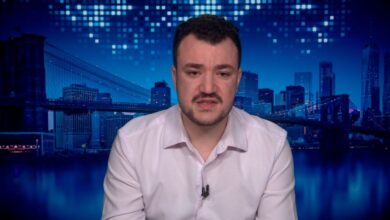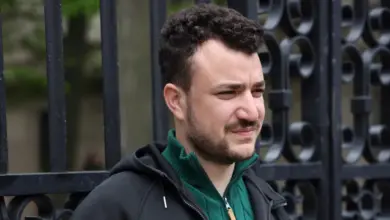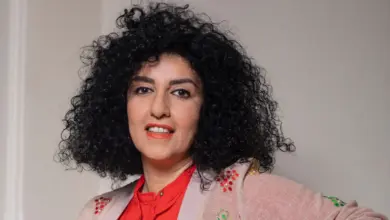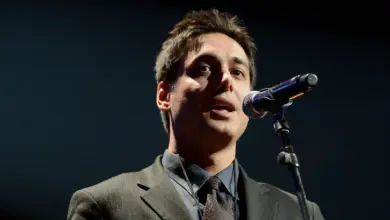Ahmed Maher's April 6 movement helped lead the uprising that toppled Hosni Mubarak in 2011. With Mubarak now out of jail, he says the revolution is back to square one, and could take a generation to prevail.
After the bloodiest week in Egypt's modern history, Maher fears the consequences of the hatred that has split the country into two rival camps: the army-led state and its backers, and the Islamists they removed from power on July 3.
"Our problem is there is a wave of madness. People tell you: 'We must eradicate them'," Maher said, saying such attitudes had emerged on both sides. "There must be a third voice."
The assessment from one of Egypt's best-known activists underlines the bleak outlook for the country whose January 25, 2011, uprising inspired pro-democracy revolts across the Arab world.
Maher, 32, says it may now be another generation before the goals of the revolution – freedom, social justice and dignity – are secured.
He spoke at a rundown Cairo office where the walls were covered with stickers bearing witness to non-stop activism since 2011: campaigns first against the generals who replaced Mubarak, and later against the elected Muslim Brotherhood-led government.
Protest work itself is becoming a victim of the latest bloodshed: April 6 canceled a rally on Friday against Mubarak's release out of fears it might lead to violence.
"We view ourselves back at square one, because what is happening now could be more dangerous, more complicated than what was there before January 25, 2011," Maher said.
"We don't fully understand what is happening in the new regime," he said. "There are fears of the return of the old regime, its people and methods."
"There are also extremist, radical armed groups."
Maher's April 6 was one of the youth movements that galvanized Egyptians during the 18-day uprising that ended when the army forced Mubarak aside on February 11, 2011.
But like most secular groups, it failed to make much of a political mark once Mubarak was toppled – a failure that helped the Islamists win election after election, culminating with last year's presidential vote that brought Mohamed Mursi to power.
April 6 backed Mursi in that vote, but later turned its countrywide activist network against him, echoing critics who said his Muslim Brotherhood was seeking to entrench its power even as it failed in government.
It gathered 2 million signatures for the Tamarod petition campaign that helped to mobilize protests against Mursi.
"When the army came to power after January 25, the alternative was the Brotherhood. Then the Brotherhood came, and the alternative was the military," he said. "The problem was the two-sided equation from the start. There must be a real alternative."
DIFFICULT TO SPEAK OUT
The Brotherhood is now facing one of the toughest crackdowns in its 85-year history.
Since Mursi's downfall, the security forces have killed at least 1,000 of his supporters, most of them last week when the police used force to break up their two Cairo protest camps.
Some 100 soldiers and police were also killed in bloodshed that has raised fears that an armed Islamist insurrection could ensue, even as the Brotherhood continues to disavow violence.
The police are arresting Brotherhood leaders and supporters across the country. State media say Egypt is fighting terrorism.
Maher said public hatred of the Brotherhood was now running so deep that it was difficult for activists to speak out about worrying trends such as the re-imposition of a state of emergency. "Everyone is directed towards the idea of the 'war on terror', and if there are violations, they are being ignored."
Mubarak's release on Thursday was a symbolic victory for supporters of the veteran autocrat. Though he is being retried for ordering the killing of protesters in the 2011 uprising, there are no longer any legal grounds for his detention.
"Naturally, there are fears, especially after the release of Mubarak," Maher said. "But as a revolution, we knew at the start there could be many setbacks … We were expecting difficulties. But nobody thought it would be this complicated."
"I should be depressed, and I am depressed, but I still have hope, even with these complications, the violence, these fears. I still have confidence that one day we will see a new Egypt," he said. "My generation might not see these changes. We might be paving the way for the new generation to see these changes."




